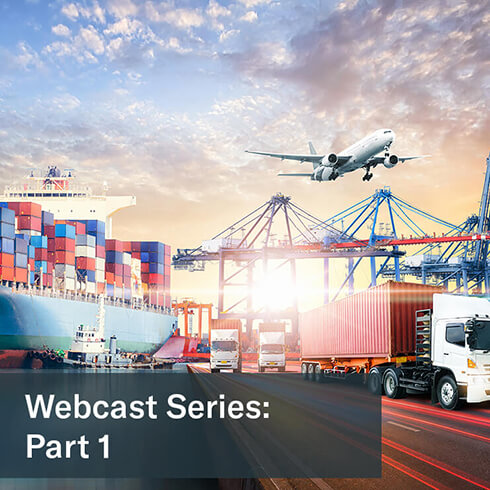Artificial intelligence (AI) is revolutionizing the food and beverage industry, offering innovative solutions that enhance efficiency, quality, and compliance.
As a manufacturing leader in this sector, it’s crucial to understand how AI can transform your operations, drive growth and give you a competitive edge in the market. Let’s explore the key applications, challenges, and best practices for implementing AI in your facilities1.
Key AI Applications that Enhance the Recipe of F&B Innovation
- Enhanced Traceability: From Raw Materials to Finished Goods
chain, from raw ingredients to finished SKUs. This technology enables real-time tracking of materials from suppliers to consumers, streamlining recall processes and ensuring compliance with FSMA regulations. Improved traceability not only boosts operational efficiency and speed to market but also increases consumer trust in your brand, which is crucial in today’s health-conscious market.
- Advanced Quality Control: Ensuring Product Consistency
Maintaining high standards for product consistency and food safety is paramount in our industry. AI-driven vision systems and spectroscopy tools act as tireless quality control agents, continuously monitoring production lines to detect irregularities and identify potential contaminants early in the process. This proactive approach significantly reduces waste, ensures batch consistency, and safeguards your brand reputation in an industry where one quality issue can have significant consequences.
- Intelligent Supply Chain Management: Optimizing Inventory and Sourcing
AI’s predictive analytics and demand forecasting tools empower you to manage inventory and sourcing more effectively, which is crucial when dealing with perishable SKUs. These systems help align supply with demand, allowing for quicker adjustments to sourcing strategies in response to changing market conditions or seasonal fluctuations. By analyzing market data, you can anticipate trends in consumer preferences and tailor your product portfolio accordingly, enhancing your competitive edge in the dynamic food and beverage market.
- Predictive Maintenance: Maximizing Equipment Uptime
Reducing unexpected downtime and enhancing equipment longevity are essential in food and beverage manufacturing, where production schedules are often tight and products have limited shelf lives. AI uses IoT sensors to predict when machinery will need maintenance, allowing for proactive servicing before breakdowns occur. This predictive approach minimizes downtime and reduces costs associated with unexpected equipment failures, contributing to smoother operations and increased OEE (Overall Equipment Effectiveness) in your processing facilities.
Challenges: Tackling the Complexities of a F&B AI Implementation
Implementing AI isn’t without its challenges. Here are some key issues to keep in mind1:
- Regulatory Compliance: The food and beverage industry is heavily regulated, and AI systems need to keep pace with evolving FSMA, GFSI, and HACCP standards.
- Real-time Processing: Many food manufacturing processes require immediate decision-making based on real-time data, especially when dealing with perishable ingredients and CIP (Clean-in-Place) systems.
- Cost and Scalability: Initial setup can be expensive, especially for smaller food and beverage companies with limited capex budgets.
- Data Privacy and Ethics: Handling large datasets, including potentially sensitive consumer information about dietary preferences and allergens, requires careful consideration.
Best Practices: Your Ingredients for AI Success
To effectively leverage AI, companies should take a strategic approach, recognizing AI as a valuable partner in production rather than a replacement for human expertise. Successful AI integration begins with quality data, reliable systems, and a gradual scaling process, all while setting realistic expectations about AI’s role. Educating the team on AI’s specific applications and limitations within the food industry is essential to gaining buy-in and optimizing its potential. Consider these foundational principles as you navigate AI implementation2:
- AI as a Support Tool: Remember, AI is here to augment your team’s capabilities, not replace the expertise of your food scientists and production managers.
- Quality Data is Crucial: Just as quality ingredients are essential in food production, clean, organized data is vital for AI in manufacturing. Ensure your MES (Manufacturing Execution System) and other connected technologies is providing accurate, real-time data.
- Start Small, Scale Gradually: Begin with basic analytics and progressively adopt more advanced systems, perhaps starting with inventory management before moving to more complex applications like flavor profile prediction.
- Set Realistic Expectations: Understand that AI isn’t a cure-all, but a powerful tool when used correctly in the context of food and beverage production.
- Educate Your Team: Ensure everyone, from the production line to the C-suite, understands AI’s capabilities and limitations in the food industry context.
The Future: What’s Brewing in AI for Food and Beverage?
As AI technology evolves, we’re seeing exciting trends like video analytics for process improvement and real-time decision-making based on live data from IoT sensors. The future of food and beverage manufacturing is looking increasingly automated and intelligent with AI in the mix, potentially leading to more personalized formulations and improved sustainability in our industry.
Implementing AI in food and beverage manufacturing is like perfecting a complex formulation. It takes time, patience, and a willingness to innovate. But with the right approach, you can create a highly efficient, competitive operation that thrives in our increasingly tech-driven market.
Are you ready to add AI to your manufacturing toolkit? The time is ripe to start innovating and transforming your operations. Embrace the future of food and beverage manufacturing. The TBM team is here to help.
Citations:
[1] https://marketing.foodindustryexecutive.com/webinar-unveiling-the-top-trends-shaping-the-food-beverage-industry-in-2025-insights-from-an-industry-expert
[2] https://www.tbmcg.com/resources/articles/ai-in-manufacturing-dos-and-donts-for-smart-adoption/




